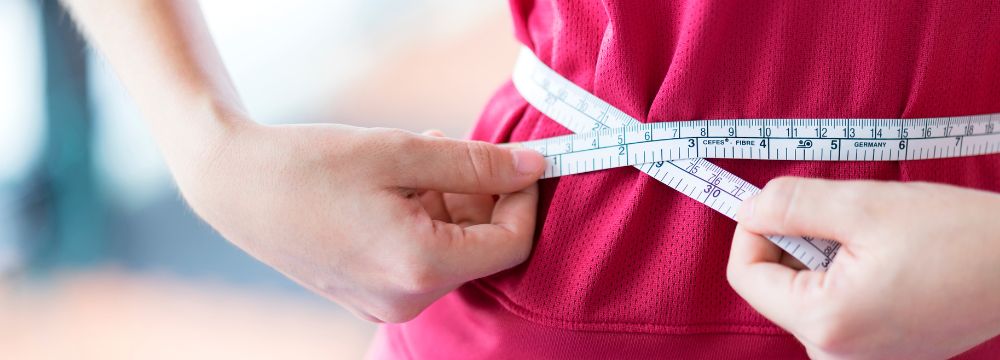Weight loss surgery has proven an effective for weight reduction, but it is important to realize that bariatric surgery is not magic, requires many lifestyle changes and there can be complications. About half of all bariatric patients will have some weight regain after their active weight loss phase over the first year or two after surgery. This might seem alarming, but statistically post-op weight regain does not mean what you might think. In most, only about 5% of excess body weight is regained two or more years following surgery. Naturally you will not be in an active weight loss phase forever.
As your body weight approaches its new normal, a small rebound is very common. When, like many bariatric patients, you have spent much of your life watching diets fail and weight creep back up, seeing the scale move up can be scary. Whichever procedure you choose, whether it is a gastric sleeve, or gastric bypass, the weight will not come off or stay off without hard work. There are common reasons why any bariatric patient will see some weight gain. Other reasons are specific to a gastric bypass.
The scale is going up! What do I do?
Sometimes regain is no issue at all. At two years post surgery, 5 or 15 pounds coming back after maybe 100-150 have been lost, may be no cause for concern. Our team will work with you to determine what is okay and when taking measures to turn things around might be warranted. If it is decided that changes need to be made, we start by taking a look at your diet and lifestyle. Usually with weight regain, patients can identify changes they have made or old habits they have allowed to sneak back in.
There are changes after surgery that, if not followed, cause weight regain. One of these is not drinking and eating at the same time. For bypass patients, drinking during a meal can mean washing food down and through the stomach more quickly. This could mean loss of the intended restriction and feeling of satiety. It could lead to dumping syndrome due to the increased speed of gastric emptying.
Even with a pouch the size of an egg and rerouted intestine, there are many foods that you can consume that will cause weight gain. If you don’t commit to healthy habits, you can regain weight. Letting your diet slide means letting more unnecessary calories in. Using your limited space for high calorie foods also means your missing out on nutrient dense foods. Similarly, discontinuing exercise means you are also losing the health benefits it provides. Even drinking carbonated beverages regularly can cause irreversible pouch stretching.
Stressors and conditions like depression can also lead to weight gain. So can changes in medications. So, in some circumstances, it is appropriate to seek support through a mental health professional or specialist. Managing stress without turning to food is difficult for a lot of patients and can make or break your long-term success.
What if I’m gaining weight, but I’m making all the right choices?
In rare cases, the procedure itself may malfunction. It is possible for a physical change to happen after a gastric bypass. Being a complex surgery, there are complications that can occur. For some, correctional surgery may be required.
One complication after gastric bypass is gastrojejunal stoma dilation. This occurs when the opening at the bottom of the stomach pouch becomes enlarged. The pyloric sphincter that sits at the bottom of the stomach is taken with the remnant stomach while a new opening is surgically created from the pouch to the small bowel. This connection is known as the gastrojejunal stoma. Over time, the stoma can dilate, which can result in weight regain. When this occurs, there are endoscopic corrective options.
While rare, fistulas are another complication that can occur after gastric bypass. A fistula occurs when the body forms an alternate pathway. This could mean that the pathway created during surgery has been negated, and pouch and the bypassed intestine are not performing as they should. While weight regain is a symptom, a fistula is usually also associated with abdominal pain or fever.
In other circumstances, the pouch may become stretched over time. It may also be the case that the pouch created during the initial surgery was larger than is ideal. In this case, revisional surgery can create a tighter pouch, which will provide more restriction. Revisional surgery may also be used to increase the amount of small bowel being bypassed.
Is my surgeon going to be disappointed that I’ve gained weight?
It is our job to support and assist you, not judge you. Your healthcare team is a resource. Rapid regain or anything that seems out of the norm can be cause for concern. Any unwanted or unexpected regain is appropriate to bring up with your surgeon and care team! We are experts in bariatrics, so we have the knowledge and experience to help. We never want you to think you are disappointing us. This is a tremendous and emotional life change and our goal is to be there for you.
We encourage you to keep in mind how many pounds you have lost when you see the number on the scale creep up a pound or two. If you start to notice changes that you don’t like, it is best to reach out for support before you get overwhelmed. We are here to help every step of the way, so take advantage of the resources available to you.









